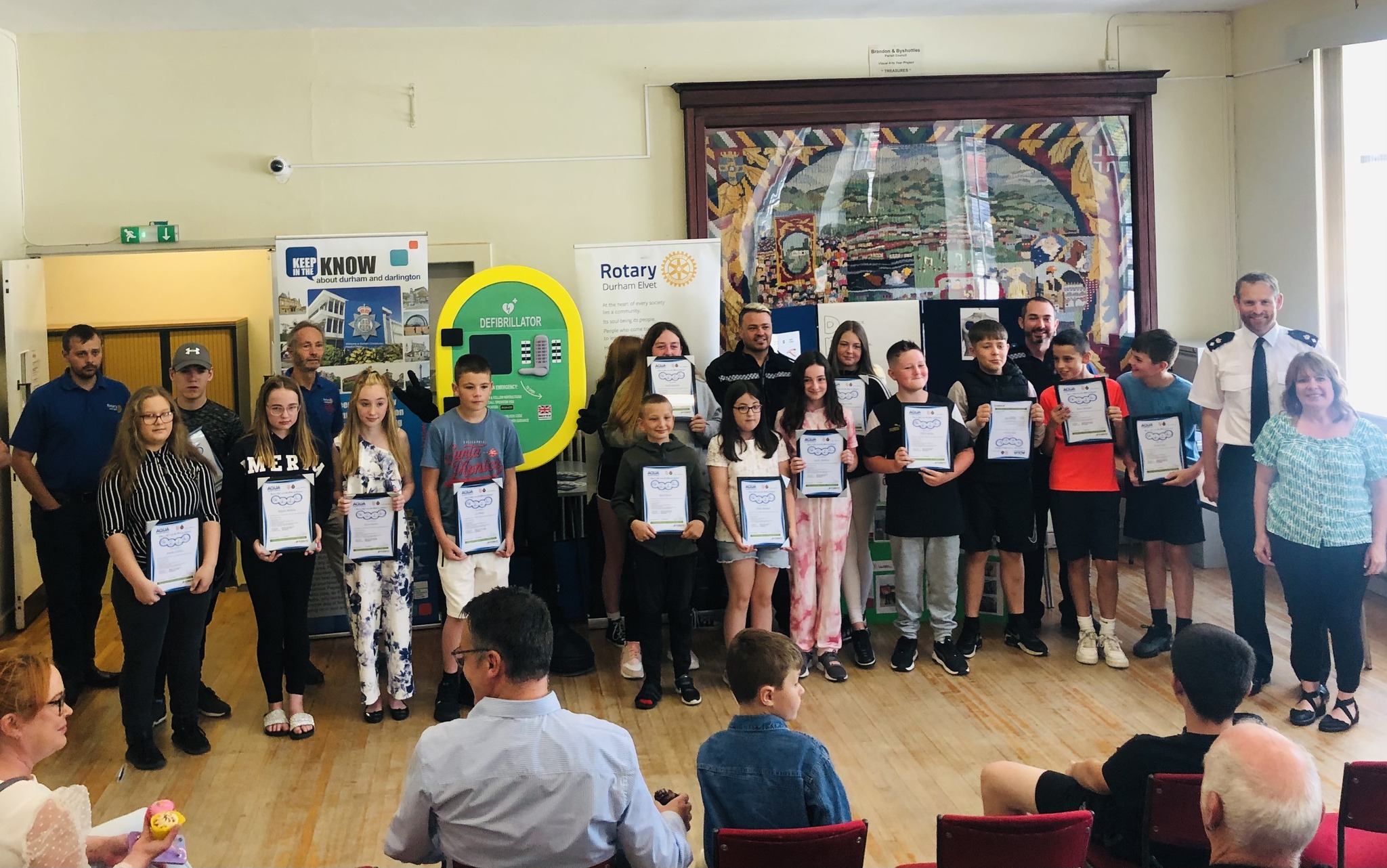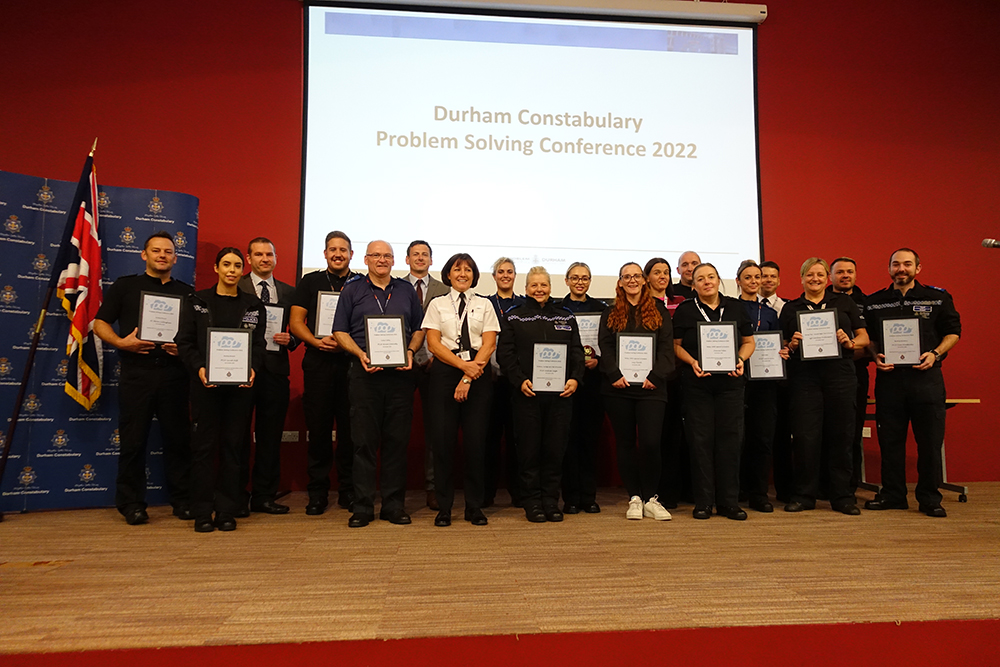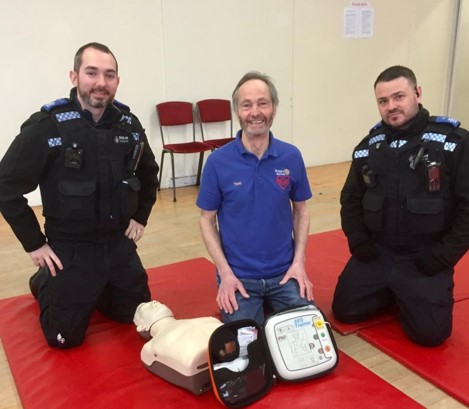Two PCSOs who developed an initiative to stop anti-social attacks on defibrillators have won a police problem solving award.
PCSOs Paul Gilroy and Dan Winstanley impressed judges at this year’s Problem Solving Conference, on Monday, which saw eight finalists from 32 projects present their initiatives to a panel including Chief Constable, Jo Farrell.
Paul and Dan’s project, called Shocking Behaviour, came about after a defibrillator at Brandon Community Hall was being repeatedly vandalised by young people last winter, despite being used by the community 15 times since it was installed in 2019.
The community officers teamed up with chairman of Brandon Welfare Hall and president of the Durham Rotary One Life North East Initiative, Tom Sharples, to look at ways to educate young people about the life-saving equipment in a bid to curb the vandalism.
A partnership was formed and practical sessions delivered to young people to promote awareness of why the defibrillator is so important, how to access it and how to give vital CPR in an emergency.
It was the first initiative of its kind across County Durham and Darlington with the first session being delivered in February.
The result? More than 75 children have completed the course and there have been zero incidents of anti-social behaviour related to the defibrillator since.
Working in collaboration with Rotary North East and MP Mary Foy, more sessions are due to commence with more than 100 young people set to learn new skills by the end of the year and classes for adults also being explored.
Because of the excellent response from young people, local businesses also provided some funding for the hall, meaning the youngsters can now attend activities in it for free too.
PCSO Gilroy said: “Throughout our towns and villages we often observe young people outside socialising in many various numbers and places.
“It is because of this we feel that these young people could potentially be in the right place at the right time to access and retrieve a defibrillator in an emergency. There is no expectation on our young people to ever have to actually use a defibrillator or carry out CPR. However, we feel that with this new knowledge and understanding they certainly have the capability of accessing a defib far quicker than the average adult and could potentially mean the difference between life and death.”
PCSO Winstanley added: “We’ve only just scratched the surface with this project and look forward to working with more and more young people as it progresses.”
To find out more and how to get involved email paul.gilroy@durham.police.uk or dan.winstanley@durham.police.uk












